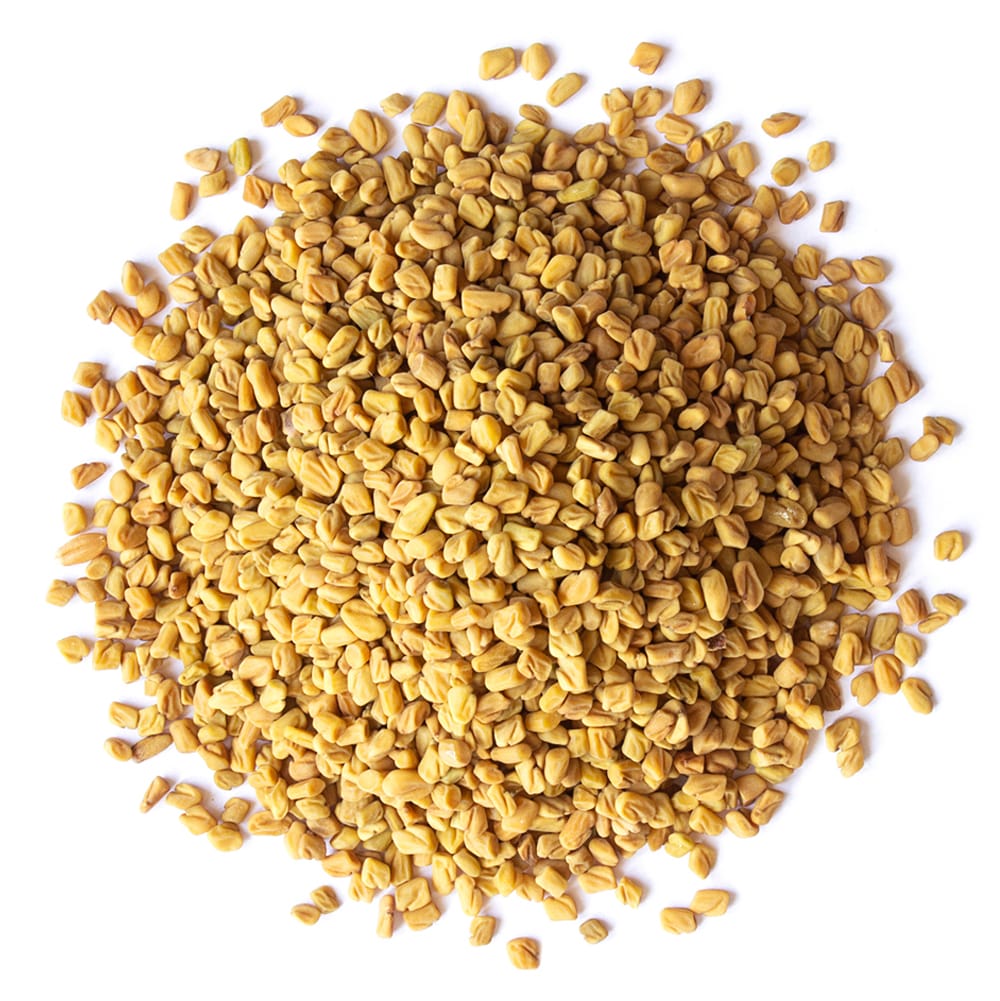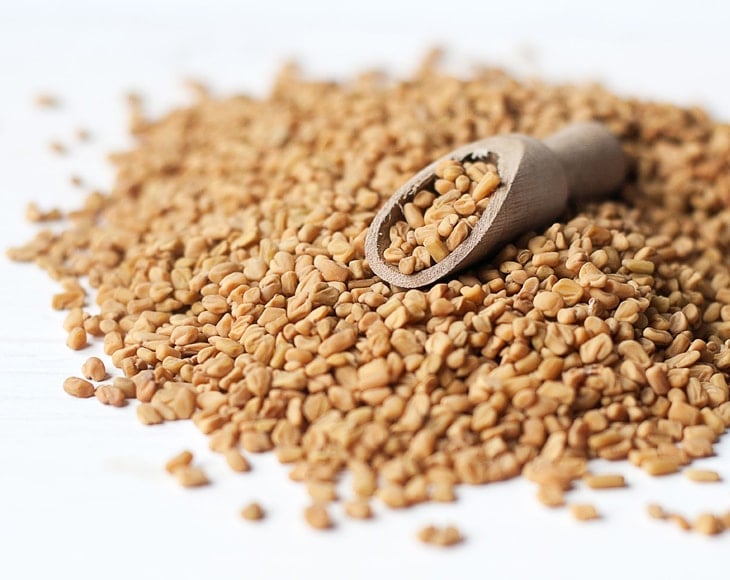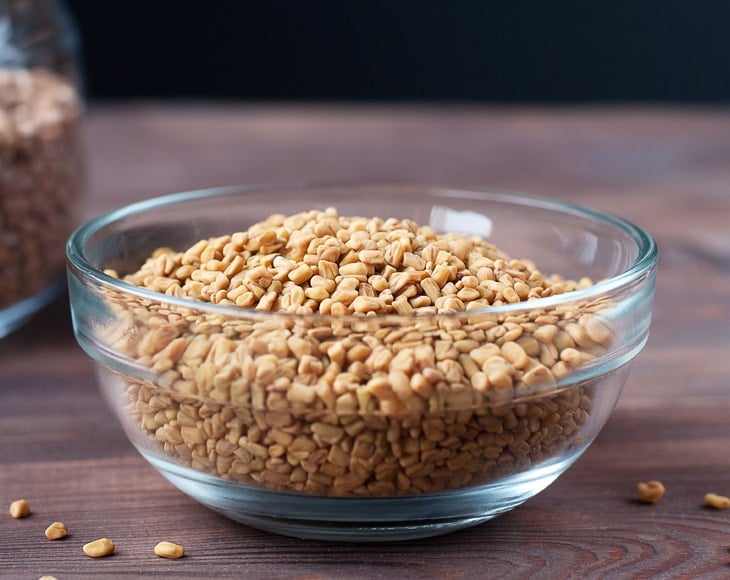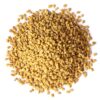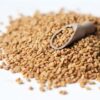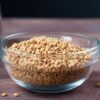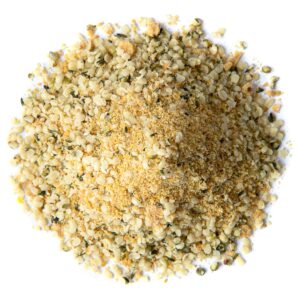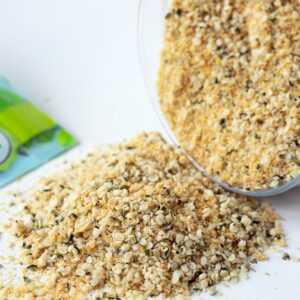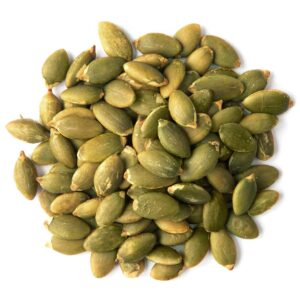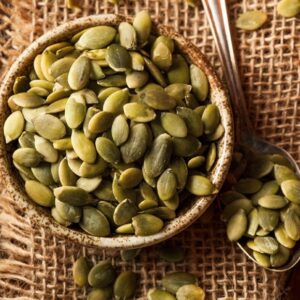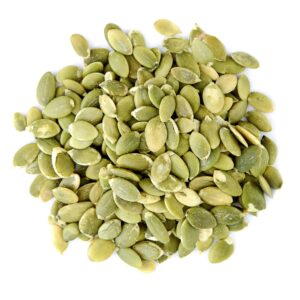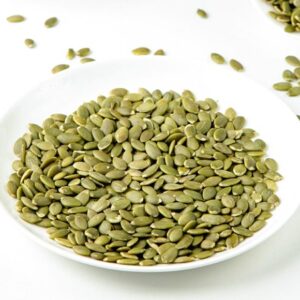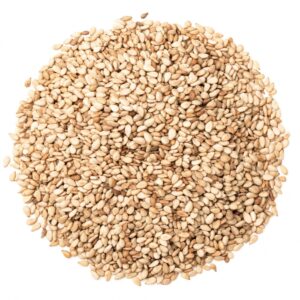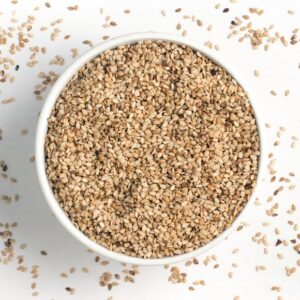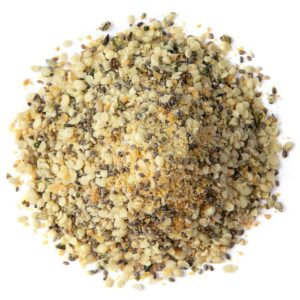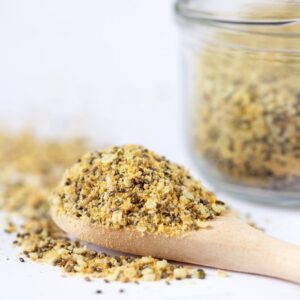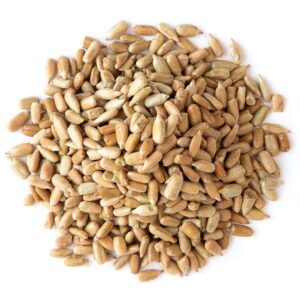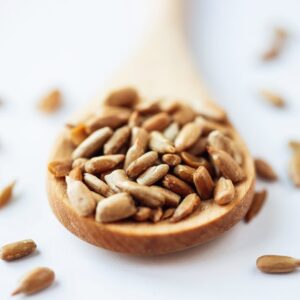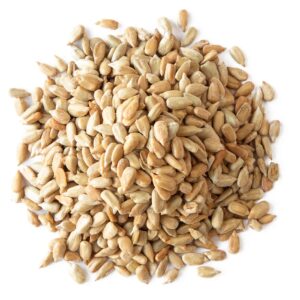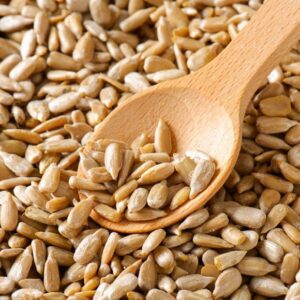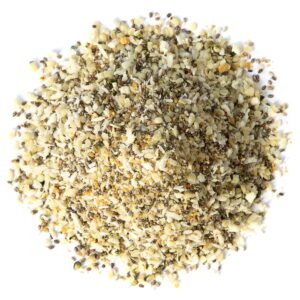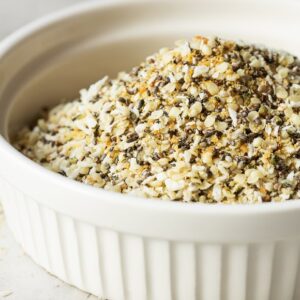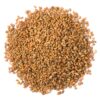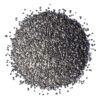Fenugreek Seeds are small, yellowing-brown seeds that come from the fenugreek plant, belonging to the Fabaceae (pea) family. They are native to the Indian subcontinent, particularly the sub-Himalayan plains. These seeds have a strong, bitter flavor and a pungent aroma, and are commonly used as a spice in Indian, Middle Eastern, and North African cuisine. Today, fenugreek grows all over southern Europe, parts of Africa, and other parts of Asia. Food to Live Fenugreek Seeds are raw and of Premium Quality. They’re Kosher, Vegan, and are can be sprouted.
Nutritional Value of Fenugreek Seeds
Fenugreek seeds are a great source of soluble fiber and contain various phytonutrients. These seeds also carry high amounts of essential minerals, such as Calcium, Iron, Copper, Potassium, Selenium, Zinc, Manganese, and Magnesium. Moreover, Fenugreek Spice packs Vitamins A, C, and several B-complex vitamins.
How to Use Fenugreek Seeds
Seeds of Fenugreek are typically dry-roasted to bring out their subtle flavors, having a bittersweet taste initially. Many Indian dishes call for whole spices to better impart the full nuances of flavor, and seeds of fenugreek can be quickly ground in a mortar and pestle for the best flavor. Many prefer to sprout these seeds instead. Yes, Food to Live Fenugreek Seeds are sproutable and have a high germination rate. Some of the most famous dishes cooked with Fenugreek Seeds are butter chicken, Chana masala, methi paratha, shrimp curry, and Ethiopian stews.
How to Sprout Fenugreek Seeds at Home
- Yields approximately 3 Cups (1/2 lb.) of sprouts. Prep 3 tablespoons of seeds, then transfer into a bowl or a sprouter. Add 2-3 times as much cool (60°-70°) water. Mix the seeds up to assure even water contact for all.
- Allow seeds to soak for 6-12 hours. Empty the seeds into the sprouter (if necessary). Drain off the soak water. Rinse thoroughly with cool (60°-70°) water. Drain thoroughly! Set the sprouter anywhere out of direct sunlight and at room temperature (70° is optimal) between rinses. Ensure sufficient air-circulation is provided.
- Always be sure to drain thoroughly. The most common cause of inferior sprouts is inadequate drainage. Rinse and drain again every 8-12 hours for 3 days.
Enjoy your homemade fenugreek sprouts! 


